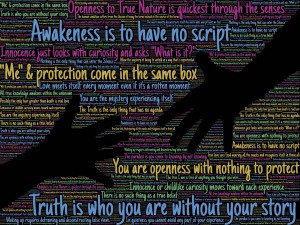 In Search of Truth
In Search of Truth
The human brain, although mind-bogglingly complex, has a tendency towards indolently polarizing ideas that should otherwise go together, resulting in half-baked concepts that too frequently become commonplace within society.
In the search for truth, the pioneering field of neuroscience and related area of behavioural economics has challenged these concepts as the products of lazy thinking – ideas that have been accepted by society because they make some sense as opposed to being fully true.
For example, the following terms are all concepts that illustrate polarized views and beliefs, yet together, each pairing can take on a new, truer meaning:
• Pro-life versus pro-choice:
The two concepts may seem polar opposites based on societal connotations but in fact both life and choice are essential goods
• Democrat versus Republican:
People often lean one way or the other but both belief systems – social justice causes and autonomy of businesses inside a government – are essentially good
• Addiction 12-step programs versus other approaches:
Both 12-step and non-12-step approaches have their place in recovery from addiction.
Specifically in relation to 12-step programs, there are two distinctly different receptions to this sort of addiction treatment – one is of cynicism, that these sorts of programs fail to address addiction as a medical disorder but rather as a more spiritual ailment.
At the other end of the scale, there are people who believe in 12-step programs wholeheartedly, who themselves have facilitated their own recovery through this type of addiction treatment.
Another successful but seemingly different form of addiction treatment is an approach rooted in neuroscience, which challenges the brain to rethink ideas and decisions. The neuroplasticity of the brain means it can be reorganized and adjusted in response to new situations or changes, and brain-change experts can stimulate the brain in such a way as to interrupt past poor decision-making and bring about new, more helpful ways of making choices.

Through the use of imaging techniques within brain sites, researchers were able to see which areas of the brain are used in different parts of the 12-step process, discovering that many of the AA member experiences caused parts of the brain to be utilized in ways that promote recovery, highlighting the connection between spiritual and clinical recovery.
By placing the pressure of ‘either or’ on ourselves when it comes to prescriptive ideas, rather than realizing that two concepts that seem different but are actually essential together for a whole truth, we face a barrage of self-created illusions that can cause psychological pain and suffering.
These self-inflicted illusions generate unwanted secondary effects and thought processes that, in turn, can create tangible, real-life symptoms.
This kind of compelling research about the nature of addiction is instrumental in the breaking down of preconceptions and assumptions that promote lazy thinking, highlighting just how important it can be to look further beyond split or forced choices that, if never challenged, can prevent positive change.
Contact Dr. Kevin Fleming at [email protected] or 877-606-6161 for more information.



